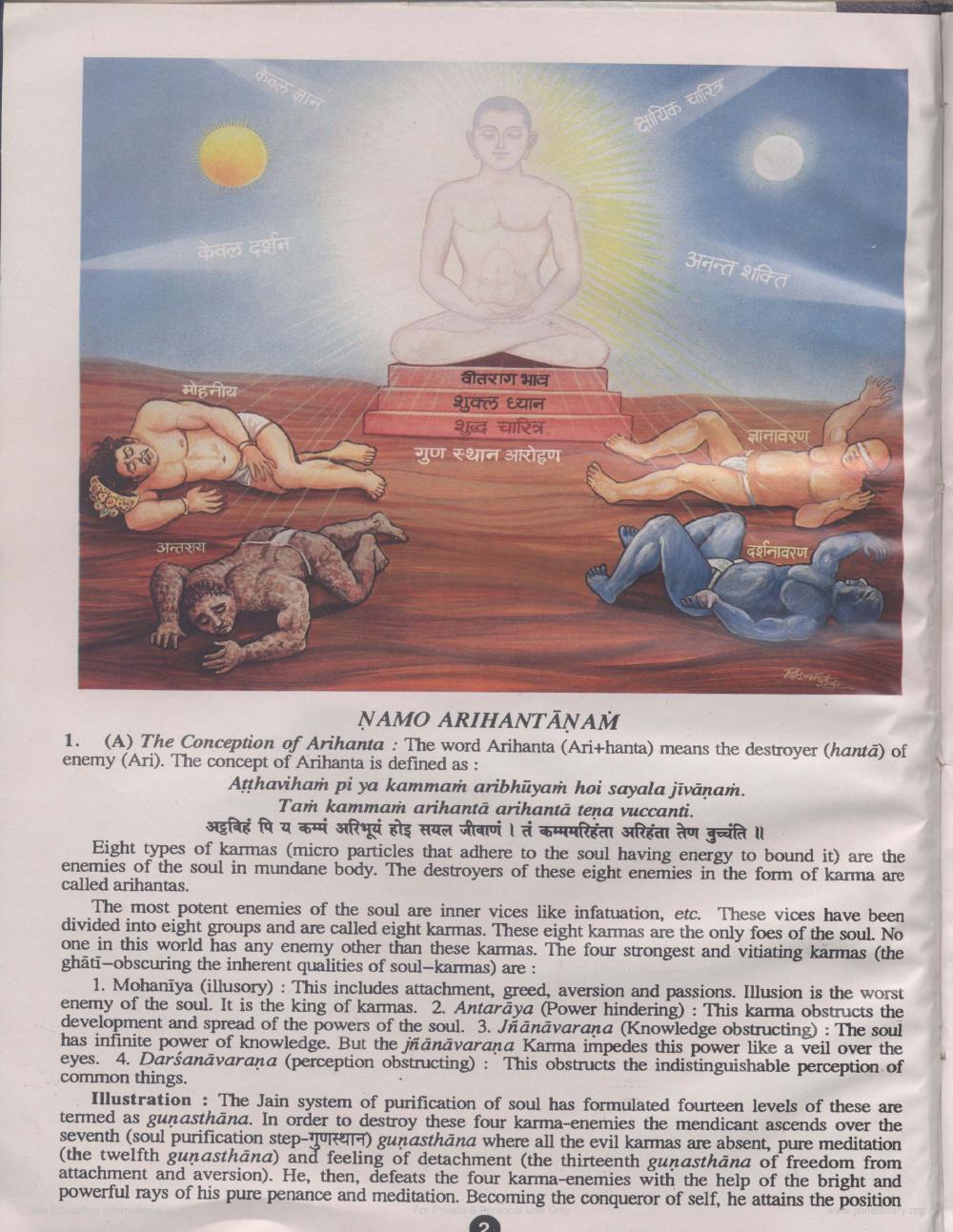Book Title: Illustrated Namokara Mahamantra Author(s): Shreechand Surana, Surendra Bothra Publisher: Diwakar Prakashan View full book textPage 8
________________ यिक चारिख Does Cla अनन्त शक्ति मोहनीय वीतराग भाव शुक्ल ध्यान शुब्द चारित्र गुण स्थान आरोहण ज्ञानावरण अन्तराय दर्शनावरण ŅAMO ARIHANTĀNAŃ 1. (A) The Conception of Arihanta : The word Arihanta (Ari+hanta) means the destroyer (hantā) of enemy (Ari). The concept of Arihanta is defined as: Atthavihaṁ pi ya kammaṁ aribhūyam hoi sayala jīvānam. Taṁ kammam arihantă arihantă tena vuccanti. अट्टविहं पि य कम्मं अरिभूयं होइ सयल जीवाणं । तं कम्ममरिहंता अरिहंता तेण बुच्चंति ॥ Eight types of karmas (micro particles that adhere to the soul having energy to bound it) are the enemies of the soul in mundane body. The destroyers of these eight enemies in the form of karma are called arihantas. The most potent enemies of the soul are inner vices like infatuation, etc. These vices have been divided into eight groups and are called eight karmas. These eight karmas are the only foes of the soul. No one in this world has any enemy other than these karmas. The four strongest and vitiating karmas (the ghāti-obscuring the inherent qualities of soul-karmas) are : 1. Mohaniya (illusory) : This includes attachment, greed, aversion and passions. Illusion is the worst enemy of the soul. It is the king of karmas. 2. Antarāya (Power hindering): This karma obstructs the development and spread of the powers of the soul. 3. Jñanavarana (Knowledge obstructing) : The soul has infinite power of knowledge. But the jñānāvarana Karma impedes this power like a veil over the eyes. 4. Darśanavarana (perception obstructing): This obstructs the indistinguishable perception of common things. Illustration : The Jain system of purification of soul has formulated fourteen levels of these are termed as gunasthāna. In order to destroy these four karma-enemies the mendicant ascends over the seventh (soul purification step-TURTT) gunasthāna where all the evil karmas are absent, pure meditation (the twelfth gunasthāna) and feeling of detachment (the thirteenth gunasthāna of freedom from attachment and aversion). He, then, defeats the four karma-enemies with the help of the bright and powerful rays of his pure penance and meditation. Becoming the conqueror of self, he attains the positionPage Navigation
1 ... 6 7 8 9 10 11 12 13 14 15 16 17 18 19 20 21 22 23 24 25 26 27 28 29 30 31 32 33 34 35 36 37 38 39 40 41 42 43 44 45 46 47 48 49 50 51 52 53 54 55 56 57 58 59 60 61 62 63 64 65 66
